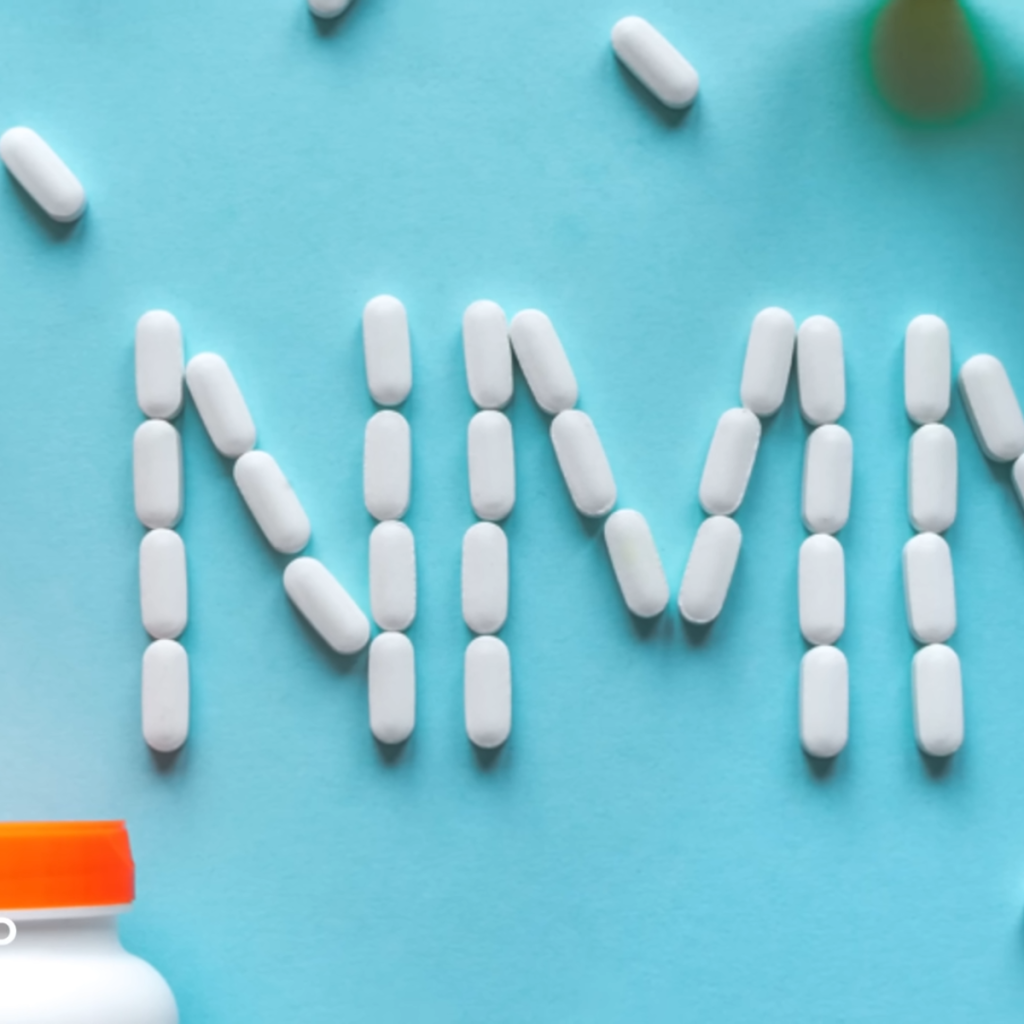Clinical Trials Supporting the Benefits of NAD+ Supplementation
08/21/2023

Are you tired of feeling sluggish and worn out? Do you want to improve your overall health and well-being? Look no further than NAD+ supplementation! Clinical trials have shown that this amazing compound can provide numerous benefits for your body and mind. So, let's dive into the world of NAD+ and explore the exciting research that supports its use.

Understanding NAD+ and Its Role in the Body
Before we delve into the clinical trials, let's get acquainted with NAD+ and its role in our bodies. NAD+, or nicotinamide adenine dinucleotide, is a coenzyme that plays a crucial role in cellular energy production. It's like the fuel that keeps our cells running smoothly, enabling them to perform various functions efficiently.
But what exactly is NAD+ and how does it work? NAD+ is a molecule that consists of two nucleotides, nicotinamide and adenine, joined together by a phosphate group. This coenzyme is involved in numerous biochemical reactions within our cells, making it an essential component for overall cellular function.
The Biochemistry of NAD+
At a molecular level, NAD+ is involved in redox reactions, which are responsible for transferring electrons during metabolic processes. It acts as a crucial cofactor in enzymes that play a vital role in energy metabolism, DNA repair, and gene expression.
When our cells undergo metabolic processes, such as breaking down glucose for energy, NAD+ acts as a carrier molecule, shuttling electrons from one enzyme to another. This electron transfer is essential for the production of ATP, the main energy currency of our cells. Without NAD+, our cells would struggle to generate the energy they need to carry out their functions.
In addition to its role in energy metabolism, NAD+ is also involved in DNA repair. Our DNA is constantly being damaged by various factors, such as exposure to UV radiation or harmful chemicals. NAD+ helps activate enzymes called PARPs (poly-ADP-ribose polymerases), which are responsible for repairing damaged DNA strands. This repair process is crucial for maintaining the integrity of our genetic material and preventing mutations that could lead to diseases like cancer.
NAD+ and Cellular Health
Not only does NAD+ support energy production, but it also plays a significant role in maintaining cellular health. It promotes the activation of sirtuins, a group of proteins known for their anti-aging and protective effects. By activating these proteins, NAD+ helps improve cellular function and reduce the risk of age-related diseases.
Sirtuins are involved in various cellular processes, including DNA repair, gene expression, and stress response. They help regulate the activity of other proteins and enzymes, ensuring that our cells function optimally. NAD+ acts as a coenzyme for sirtuins, providing the necessary fuel for their activation. This activation, in turn, leads to improved cellular health and increased resistance to age-related damage.
Furthermore, NAD+ has been shown to have a positive impact on mitochondrial function. Mitochondria are often referred to as the powerhouse of the cell, as they are responsible for producing most of the ATP needed for cellular energy. NAD+ helps maintain the health and efficiency of mitochondria, ensuring that they can continue to generate energy efficiently. This is especially important in tissues with high energy demands, such as the brain and muscles.
In conclusion, NAD+ is a vital coenzyme that plays a crucial role in cellular energy production, DNA repair, and gene expression. Its involvement in various biochemical processes makes it essential for overall cellular function and health. By understanding the biochemistry of NAD+ and its impact on cellular health, we can better appreciate its significance in clinical trials and potential therapeutic applications.
The Importance of NAD+ Supplementation
As we age, our NAD+ levels naturally decline, leading to a decrease in cellular energy and compromised health. However, clinical trials have shown that supplementing with NAD+ can reverse these effects and provide an array of benefits.
Aging and NAD+ Levels
One of the remarkable findings from clinical trials is the association between NAD+ levels and aging. As our NAD+ levels decline, the aging process is accelerated, and we become more susceptible to age-related conditions. By supplementing with NAD+, we can boost our NAD+ levels and potentially slow down the aging process.
Furthermore, research has shown that NAD+ plays a crucial role in DNA repair. As we age, DNA damage accumulates, leading to cellular dysfunction and an increased risk of diseases. NAD+ supplementation can enhance the activity of enzymes involved in DNA repair, helping to maintain the integrity of our genetic material and potentially reducing the risk of age-related diseases.
In addition to its role in DNA repair, NAD+ is also involved in regulating gene expression. Studies have demonstrated that NAD+ levels influence the activity of sirtuins, a family of proteins that play a key role in cellular health and longevity. By supplementing with NAD+, we can activate sirtuins and promote their beneficial effects on various cellular processes, including metabolism, inflammation, and stress response.
NAD+ Supplementation and Disease Prevention
Another exciting aspect of NAD+ supplementation is its potential to prevent various diseases. Clinical trials have shown promising results in terms of reducing the risk of neurodegenerative disorders, cardiovascular diseases, and metabolic conditions.
Neurodegenerative disorders, such as Alzheimer's and Parkinson's disease, are characterized by the progressive loss of neurons in the brain. Studies have indicated that NAD+ supplementation can protect against neuronal damage and improve cognitive function in animal models of these diseases. Furthermore, NAD+ has been shown to enhance mitochondrial function, which is crucial for maintaining neuronal health and preventing neurodegeneration.
In terms of cardiovascular health, NAD+ supplementation has been found to improve endothelial function, reduce inflammation, and enhance the repair of damaged blood vessels. These effects can potentially lower the risk of heart disease, stroke, and other cardiovascular conditions. Additionally, NAD+ plays a role in regulating lipid metabolism, which is essential for maintaining healthy cholesterol levels and preventing the development of atherosclerosis.
Metabolic conditions, such as obesity and type 2 diabetes, are characterized by impaired energy metabolism and insulin resistance. NAD+ supplementation has shown promise in improving metabolic health by enhancing mitochondrial function, promoting efficient energy production, and increasing insulin sensitivity. These effects can potentially help prevent the development of metabolic disorders and their associated complications.
In conclusion, NAD+ supplementation offers a range of benefits for aging individuals. By boosting NAD+ levels, we can potentially slow down the aging process, reduce the risk of age-related diseases, and improve overall health and well-being. Further research is needed to fully understand the mechanisms underlying these effects and to optimize the use of NAD+ supplementation in clinical settings.
Delving into the Clinical Trials
Now that we understand the importance of NAD+ supplementation, let's take a closer look at the clinical trials that have been conducted to support its benefits.
Methodology of NAD+ Clinical Trials
Clinical trials involving NAD+ supplementation follow rigorous scientific protocols to ensure validity and reliability. These trials are designed to provide a comprehensive understanding of the effects of NAD+ on various health conditions. They typically involve participants with varying health conditions, ranging from age-related symptoms to cognitive decline and athletic performance.
The trials utilize double-blind, placebo-controlled methods, which means that neither the participants nor the researchers know who is receiving the NAD+ supplementation and who is receiving a placebo. This method helps eliminate bias and ensures that the results are accurate and reliable.
Furthermore, these clinical trials are not short-term endeavors. They may span months or even years to gather comprehensive data on the long-term effects of NAD+ supplementation. This approach allows researchers to track changes and improvements over an extended period, providing a more accurate assessment of the benefits.
Key Findings from NAD+ Clinical Trials
The results from clinical trials exploring NAD+ supplementation have been overwhelmingly positive, highlighting the potential benefits of this innovative approach. Participants in these trials have reported a wide range of improvements in various aspects of their health and well-being.
One of the most notable findings is the significant increase in energy levels. Participants who received NAD+ supplementation reported feeling more energized and revitalized, allowing them to engage in daily activities with greater enthusiasm and vigor.
Another key finding is the improvement in cognitive function. Many participants experienced enhanced mental clarity, improved memory, and increased focus after undergoing NAD+ supplementation. These improvements in cognitive abilities have the potential to positively impact various aspects of life, including work, relationships, and overall quality of life.
Athletic performance is another area where NAD+ supplementation has shown promising results. Participants who incorporated NAD+ into their training routines reported improved endurance, faster recovery times, and increased overall athletic performance. These findings suggest that NAD+ may be a valuable tool for athletes looking to enhance their physical capabilities and achieve peak performance.
Furthermore, the trials have also revealed a reduction in age-related symptoms among participants. Many individuals reported a decrease in symptoms commonly associated with aging, such as joint pain, fatigue, and decreased mobility. This finding suggests that NAD+ supplementation may have the potential to slow down the aging process and improve overall well-being in older adults.
Overall, the findings from NAD+ clinical trials are truly game-changing. They provide compelling evidence of the potential benefits of NAD+ supplementation in various aspects of health and well-being. As further research continues to explore this exciting field, we can expect to uncover even more insights into the remarkable effects of NAD+.
Interpreting the Results of NAD+ Clinical Trials
Now that we have explored the exciting results of NAD+ clinical trials, let's discuss the benefits of NAD+ supplementation and potential side effects.

Benefits of NAD+ Supplementation
The benefits of NAD+ supplementation are vast and cover a wide range of areas. From improved energy production and enhanced cellular repair to better brain function and even potential anti-aging effects, NAD+ truly has the potential to revolutionize our health and well-being.
Potential Side Effects and Risks
While NAD+ supplementation has shown great promise, it's essential to consider potential side effects. Some individuals may experience mild gastrointestinal discomfort, such as nausea or diarrhea, but these effects are generally temporary and subside with continued use. As with any supplement, it's crucial to consult with your healthcare provider before starting NAD+ supplementation.
Future Directions for NAD+ Research
As the field of NAD+ research continues to grow, there are still many unanswered questions and exciting avenues to explore.
Unanswered Questions in NAD+ Research
Researchers are eager to uncover the mechanisms behind NAD+'s diverse effects and explore its potential in treating specific diseases. Additionally, they aim to understand the optimal dosage and duration of NAD+ supplementation for maximum benefits.
Potential Impact on Healthcare and Treatment Strategies
The implications of NAD+ supplementation are significant, potentially revolutionizing healthcare and treatment strategies. With further research and clinical trials, we may witness a shift in disease prevention and management, aiming to target the root causes rather than merely alleviating symptoms.
In Conclusion
With the support of clinical trials, NAD+ supplementation has emerged as a powerful tool in promoting cellular health, slowing down the aging process, and potentially preventing various diseases. So, why wait? Consider incorporating NAD+ supplementation into your wellness routine and unlock the benefits it holds for your body and mind.

 Back to Blog
Back to Blog